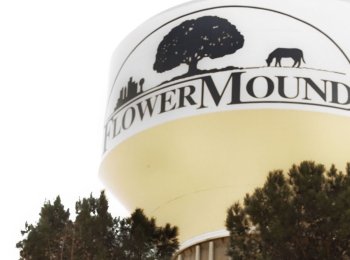 As the town continues to grow, Flower Mound is evaluating future water needs and will begin a plan for reuse water as a source to help meet future demand.
As the town continues to grow, Flower Mound is evaluating future water needs and will begin a plan for reuse water as a source to help meet future demand.
On Thursday, the Flower Mound Town Council unanimously approved the reuse water master plan following the town’s Planning and Zoning Commission’s unanimous vote on Monday to recommend approval.
Council members and commissioners were told the town currently has 41 million gallons of water per day and, at build-out, would need about 61.48 million gallons of water per day, according to the 2009 master plan.
“In this case, reuse would be used to offset the need to purchase additional water,” said Ken Parr, executive director of public works for the town.
He told commissioners potable water is becoming more expensive as prices increase an estimated 4 percent each year.
The proposal outlined by Glenn Gary of Kimley-Horn & Associates would involve building a pump station and 4 million gallons of storage to service the Denton Creek area which covers an estimated 4,600 acres in a 7.25-square-mile area.
The reuse water would be supplied from the Trinity River Authority Denton Creek Regional Wastewater System wastewater treatment plant located just north of Roanoke on U.S. Highway 377. The plant can treat up to 11.5 million gallons per day, which could meet the town’s demands through build-out, officials said.
Cost of the pump station and storage is estimated at $7.5 million. Transmission lines, ranging from 8-inch to 20-inch, would cost an estimated $16.5 million with a total projected cost of $24 million.
The town currently has a plan to use a reuse water system within the Lakeside Business District, which would be supplied through the town’s wastewater treatment plant.
Reuse water, regulated by the Texas Commission on Environmental Quality, is earmarked for irrigation mainly. The proposal calls for reuse water in parks, non-residential open spaces, school ball fields and public facilities.
Parr told officials that a number of communities in the region are using reuse water, including Frisco where some neighborhood developments are incorporating water reuse into their projects. Those developments, he said, would always have access to water even during times of drought due to using reuse water for irrigation instead of potable water.
When asked if it would be cost effective, Parr said that using the additional costs for water purchases each year for the past 15 years and, as an example, paying off debt service over the next 20 years, it would pay for half of the project.
“Environmentally, it’s a good thing. From a cost effective measure, it’s a good thing,” he said. “It would be no more than what it costs to maintain regular water.”
Timing of the water reuse master plan is due to the need to purchase land for the pump station and storage facility.
“We think this gets us started,” Parr said. “And it gives us all sorts of flexibility.”



















